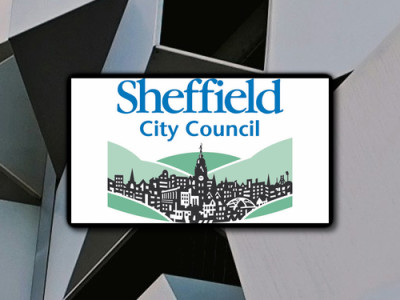Derek, explaining that both organisations hold the same mission to end smoking, said: “We are asking the WHO to review their initial recommendation that researchers and governments not collaborate with us. The FSFW is an independent, non-profit organisation that is spearheading innovative research to accelerate progress in smoking cessation and to raise awareness of the viability of harm reduction.”
The letter reads:
AN OPEN LETTER TO THE WHO EXECUTIVE BOARD
January 24, 2019
Dear Executive Board Members,
At the outset, I would like to wish you all a very happy and healthy 2019.
New energy and a new path
A new year begins with resolutions. For more than three decades, the World Health Organization (WHO) has pledged to end smoking. Tobacco kills more than seven million people annually. Most are in developing countries. Each death is one too many. We have an unprecedented opportunity to give global tobacco control new energy and a new path. This requires courage, creativity, and the ability to seize opportunities as we strive to end smoking together.
The avoidable burden of disease
More than 1.1 billion people smoke cigarettes. Most efforts to quit fail. The WHO estimates it is extremely difficult for smokers to quit smoking without assistance and states that even pharmacological therapy with nicotine replacement therapy can increase quit rates by only about 7%. We must strengthen efforts to help smokers quit, develop more effective cessation programs, and promote the use of harm-reduction products that substantially reduce risks associated with combustible cigarettes and toxic smokeless tobacco products.
One year ago, we created the Foundation for a Smoke-Free World (FSFW) to do this and more.
As President of the FSFW and one of the lead architects of the Framework Convention on Tobacco Control (FCTC), the world’s first treaty entirely devoted to health, I have stressed the importance of aligning our goals to complement and support the WHO and the FCTC. In fact, we focus where the FCTC by its own acknowledgment remains weak: on ending smoking in adults, on preparing poor farmers for future alternative livelihoods, and on strengthening scientific capacity in developing countries.
The FSFW is an independent, US-based foundation
We are registered as a US 501(c)(3) not-for-profit organization. We have established rigid bylaws, a certificate of incorporation, and a funding agreement that ensures our independence from our core funder, Philip Morris
International Inc (PMI). Our Board of Directors is led by distinguished people with backgrounds in science, agriculture, and corporate governance. No Board member (or any staff member) has links to the tobacco industry. The Foundation has taken every measure to ensure that PMI does not influence our work.
We welcome the recent acknowledgment by the WHO’s Executive Board Provisional Agenda Item 7.3, concerning non-State actors and the tobacco industry, that “…it has proven difficult to come up with a consistent definition of how broadly ‘furthering the interests’ should be interpreted.” This, we firmly believe, should pave the way for the WHO to review its initial statement recommending that researchers and governments should not collaborate with us. We believe that our actions show that we are furthering the interests of public health, especially in developing countries.
The FSFW has already cut new ground
To accelerate progress on smoking cessation, we engaged with EY-Parthenon’s Global Life Sciences Practice to produce Smoking Cessation Products and Services: Global Landscape Analysis. The report showed that current smoking-cessation products produce very low quit rates and that there are few novel cessation drugs in the pharmaceutical pipeline. We aim to address this market failure.
To advance knowledge about harm reduction, we supported the development of the first global review of the topic: No Fire, No Smoke: Global State of Tobacco Harm Reduction 2018 (GSTHR). The GSTHR has been endorsed by the International Network of Nicotine Consumer Organisations (INNCO), a proponent of tobacco harm reduction.
To initiate dialogue with smokers, we conducted a Worldwide State of Smoking Survey of smokers in 13 countries. The findings shed light on the addictiveness, smoking behaviours, awareness, and consumption of alternative products. These data are critical to the design of more effective interventions.
Harm reduction is part of the FCTC definition of tobacco control
We must do more to raise awareness of the viability of harm reduction. Not all nicotine-containing products are equally harmful. In fact, some substantially cut the exposure level of several known health-risk markers (by well over 90%) compared to combustible cigarettes.
In many countries, including the UK, Sweden, and Japan, such products are displacing combustible cigarettes at a rapid rate. These experiences could well be replicated in China, Indonesia, and Brazil, affecting hundreds of millions of smokers. We must do more to expand the body of scientific evidence on reduced-harm nicotine products and overcome the misinterpretation of risk by policy makers, physicians, and smokers. We plan to do this through a network of centres and requests for proposals to be announced early this year.
The FSFW will track and report industry tactics and progress
We have launched a bold Industry Transformation Initiative. We will soon announce the winner(s) of a substantial grant dedicated to evaluating the tobacco industry’s progress toward ending combustible tobacco sales and assessing any actions they may take to undermine progress toward a smoke-free world. Our background report, Global Trends in Nicotine, provides early insights needed to guide progress.
Tobacco smallholder farmers are our responsibility
To support Article 17 in the FCTC, the Foundation’s Agricultural Transformation Initiative (ATI) seeks to help smallholder tobacco farmers prepare for an era of significantly reduced demand for tobacco. Our initial focus is on Malawi because the country’s economy is highly dependent on tobacco. Lessons learned in Malawi will have implications for Tanzania and other countries in the South African Development Community.
Ending adult smoking is key to the attainment of several Sustainable Development Goals
During the Executive Board meeting, progress on the Sustainable Development Goals (SDGs) related to noncommunicable diseases will be reviewed. These goals cannot be met without concerted action to end adult smoking. FSFW is ready to accelerate work with WHO to achieve this.
As you meet this January in Geneva, we hope you will review and consider how best to work with the Foundation to facilitate a rapid reduction in the use of lethal cigarettes. Over the past 12 months, we have made substantial progress in achieving what we pledged to do in support of our mission to end smoking. These efforts need to be fully leveraged by the WHO. Our goal is the same—to end smoking in this generation.
Derek Yach, President, Foundation for a Smoke-Free World
Resources:
- The Foundation for a Smoke-Free World - https://www.smokefreeworld.org
- World Health Organization - https://www.who.int
Dave Cross
Journalist at POTVDave is a freelance writer; with articles on music, motorbikes, football, pop-science, vaping and tobacco harm reduction in Sounds, Melody Maker, UBG, AWoL, Bike, When Saturday Comes, Vape News Magazine, and syndicated across the Johnston Press group. He was published in an anthology of “Greatest Football Writing”, but still believes this was a mistake. Dave contributes sketches to comedy shows and used to co-host a radio sketch show. He’s worked with numerous vape companies to develop content for their websites.
Join the discussion
Doctors call for ban
Doctors call for prescription-only vapes in a letter to The Times under the guise of protecting children – ignoring the impact a similar approach has had in Australia
Council Demands Disposable Ban
Sheffield City Council has written to the Secretary of State to demand that the government bans disposable single-use vapes
CoEHAR Writes to the European Commissioner for Health
The Centre of Excellence for the acceleration of Harm Reduction has written a letter to the European Commissioner for Health asking for a redefinition of anti-smoking policies
Stolen Samsung Warning
Lawyers acting on behalf of Samsung are reminding us not to sell you any of their batteries in case they’re used for anything and order us to warn you about stolen batteries because reasons












